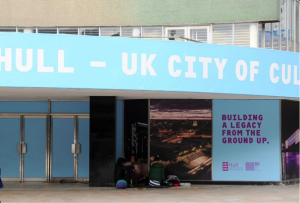
The Bevan Healthcare Pathway team in Hull has dramatically improved both the health and housing outcomes for homeless patients. The team was commissioned by Hull Clinical Commissioning Group to deliver a local Pathway model of care and advocacy for homeless patients admitted to hospital.
Key achievements include:
- Reduction of rough sleeping by 77% from 71 of the 235 referred patients to 16.
- An 88% decrease in very unstable accommodation from 139 patients to 16.
- 100% increase in stable accommodation to 182 patients from 91.
- Improved community follow ups – the team have grown to see this as a central part of the support they provide.
- Improved access to ongoing healthcare aided by updating of patient records (nearly half were found to be out of date or incorrect on admission) and registration of non-registered patients with a GP.
- The team were also reported to have a positive impact on hospital culture and how staff interact with patients from vulnerable groups.
The Bevan Healthcare ‘Pathway’ team began work at Hull Royal Infirmary and Castle Hill hospitals on 1st October 2019. The team comprises a band 7 nurse, two GPs, two health support workers, a healthcare assistant and an advanced nurse practitioner. Over the course of the first year, 235 patients were referred by hospital staff and community services. Patients were assessed by the team for their physical, mental health, housing, safeguarding and social support needs in order to form a care plan and discharge pathways that prioritise the needs of the patient. The ethos of the team is to deliver this support using a sensitive, compassionate and motivational approach with equal priority given to housing as healthcare outcomes.
A report on the first year of operation demonstrates that in-hospital intervention and advocacy by a dedicated team of healthcare professionals has a positive impact on the lives of people living on the streets or in unstable accommodation. The report describes how such initiatives are a cost-effective way to reduce the cycle of readmission that sees people experiencing homelessness repeatedly in hospital, and so can in turn help to improve hospital capacity.
Pathway has developed an integrated in-hospital care model to address problems of poor morbidity and mortality outcomes and inadequate hospital discharge in people experiencing homelessness, people in prison, Gypsies, travellers and sex workers. The mean average age of death for men in these vulnerable groups is 45, for women it is 43.
The first year of the Hull team has been deemed a significant success and it has been recognised by homeless charity, Emmaus to who gave them an Award for Outstanding Contribution and The Queens Nursing Institute who published a Best practice / Innovation Case Study of the team’s work. As a result, the team have been asked to speak at the upcoming European Federation of National Organisations Working With the Homeless Conference. To read the full report click here.